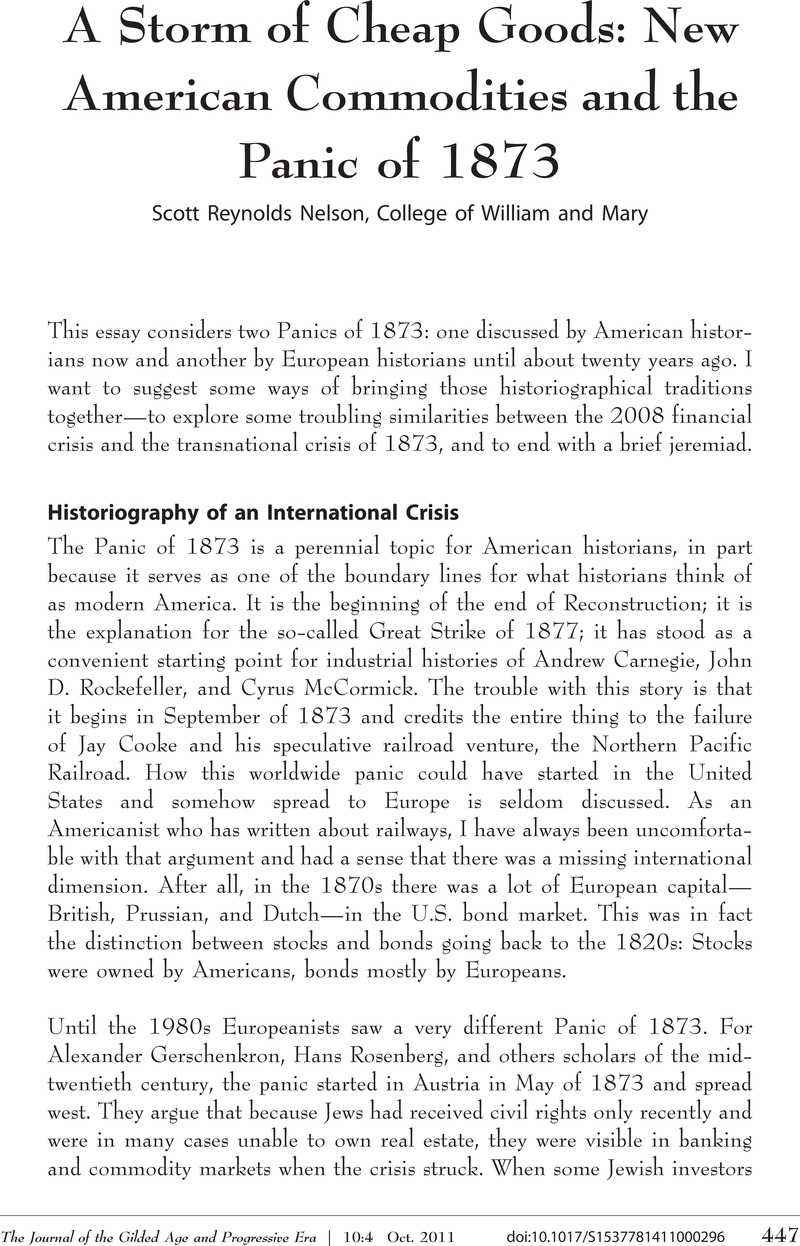Published online by Cambridge University Press: 28 September 2011

1 Gerschenkron, Alexander, Bread and Democracy in Germany (Berkeley, 1943)Google Scholar; Rosenberg, Hans, Grosse Depression und Bismarckzeit: Wirtschaftsablauf, Gesellschaft und Politik in Mitteleuropa (Berlin, 1967)CrossRefGoogle Scholar.
2 Blackbourn, David and Eley, Geoff, The Peculiarities of German History: Bourgeois Society and Politics in Nineteenth-Century Germany (New York, 1984)CrossRefGoogle Scholar; Barkin, Kenneth, “A Case Study of Comparative History: Populism in Germany and America” in The State of American History, ed. Bass, Herbert J. (Chicago, 1970), 373–404Google Scholar.
3 The comments below draw upon my essay, “The Real Great Depression,” first published, without footnotes, in the Chronicle of Higher Education, Oct. 1, 2008.
4 Wirth, Max, Geschichte der Handelskrisen (New York, 1890), 450–614Google Scholar; Kindleberger, Charles, Historical Economics: Art or Science? (Berkeley, 1990)Google Scholar, ch. 14.
5 Ronna, A., Le Blé aux États-Unis D'Amérique (Paris, 1880), 117–82Google Scholar; “The Grain Trade,” Massachusetts Ploughman, Jan. 15, 1876Google Scholar; O'Rourke, Kevin H., “The European Grain Invasion, 1870–1913,” Journal of Economic History 57 (Dec. 1997): 775–801CrossRefGoogle Scholar.
6 Simon, Matthew, Cyclical Fluctuations and the International Capital Movements of the United States (New York, 1978), 145–72Google Scholar.
7 Gutman, Herbert G., “The Failure of the Movement by the Unemployed for Public Works in 1873,” Political Science Quarterly 80 (June 1965): 254–76CrossRefGoogle Scholar.
8 Gerschenkron, Bread and Democracy in Germany; Rosenberg, Grosse Depression und Bismarckzeit.
9 On the role of new industries in evening out seasonal cycles, see Cronon, William, Nature's Metropolis: Chicago and the Great West (New York, 1991)Google Scholar.